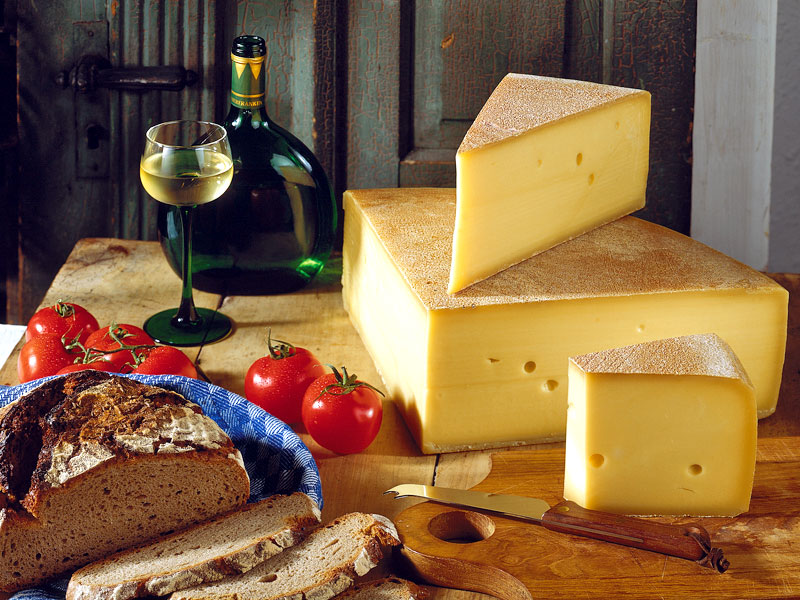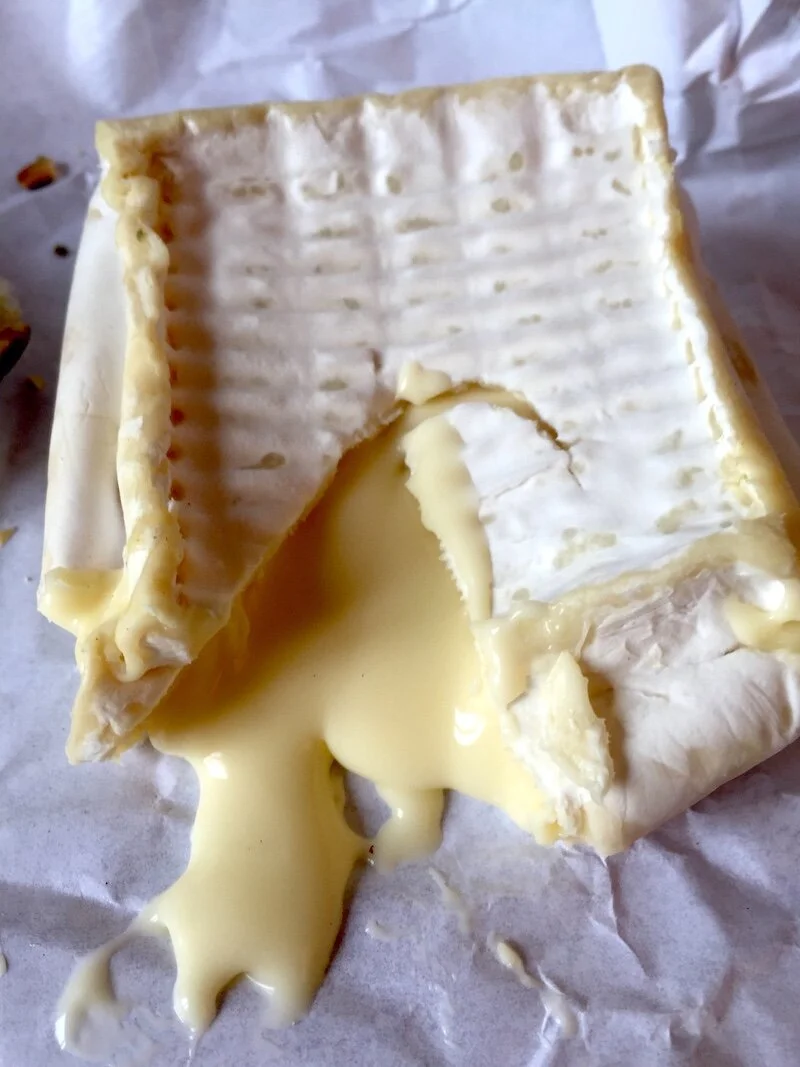Photo: Bayerisches Staatsministerium für Ernährung, Landwirtschaft und Forsten - www.food-from-bavaria.de
World Cheese Encyclopaedia - Each Sunday learn all about a new cheese. This week Allgäuer Bergkäse from Germany.
Photo: fondofoods.com
Country: Germany 🇩🇪
Region: Allgaeu Alps
Made from: Cow’s milk
Pasteurised: No
Texture: Hard, firm, crumbly
Taste: Nutty, spicy, full flavored
Certification: PDO (Protected Designation of Origin)
Aging: minimum 4 months
Bergkäse (German for mountain cheese) refers to a number of varieties of cheeseproduced in the Alps. Mountain cheese is not a protected designation, but rather a type of large round hard cheese with almost no holes and an enticing nutty taste. The very best is produced in the summer months when the cows eat lots of herbs up on the steep meadows, while hay for the winter feed is made on the lower pastures.
Allgäuer Bergkäse also known as Bavarian Bergkäse (Bawarii Bergkäse), is a hard mountain cheese and the only "PDO" (Protected Designation of Origin) cheese from Germany. It is also famous as the smaller brother of the popular Allgauer Emmentaler. As required by PDO regulations, Allgäuer Bergkäseis a handmade, artisanal cheese made from raw, silage free milk of cows grazing in the Allgäu Mountains of southwest Germany.
Photo: cheese.com
This cheese is often called the “baby brother” of the Allgäuer Emmentaler and is sometimes also called Alpenkäse (Alp Cheese). Although it is made using similar production methods to the Emmentaler, one of the differences between the two cheeses is that Bergkäse is made in the mountains during the spring months and is brought down from the mountains after 4 weeks to ripen. Other differences between the two cheeses are that Bergkäse is ripened at a cooler temperature, and has smaller holes than Emmentaler.
Photo: germanfoods.org
Allgäu mountain cheese is produced from morning and evening milk. The evening milk is left standing overnight then skimmed in the morning and the morning milk added and mixed. Then the milk is warmed to 30 -32 °C with cultures and rennet added. Starting after about half an hour, the milk thickens and is then cut into pea to hazelnut sized curds with the cheese harp. This preliminary cheese making stage lasts around 30 to 40 minutes. Afterwards, depending on the amount of milk and the degree of ripening, it is reheated over about ½ hour up to 50 °C then stirred for 20 to 40 minutes. Finally, the cheese is removed from the kettle in a cloth and pressed over a whole day with an increasing pressure of from 5 to 8 kg per kg cheese, whereby it is also turned three times. On the following morning the cheese is immersed in a 20% brine bath for at least one day. Subsequently it is cellar-matured for two months at 16 °C during which time the cheese round is washed with brine and turned two to three times per week. After maturing for a month at 12 °C the cheese has reached the correct maturity for consumption. Minimum age for Allgäu mountain cheese is four months.
The traditional cheese making process in copper vats, one wheel at time, produces a firm artisanal cheese that has a spicy flavour and characteristically strong aroma. The longer the ripening time of the cheese the more intense the flavour. A whole wheel weighing an average of 60 pounds has a dark yellow to brown rind. Wedges of Allgäuer Bergkäse will display a flexible but firm pate, light yellow in colour with random pea-sized holes scattered throughout. Allgäuer Bergkäse is a high-fat cheese with 62% fat.
History
Photo: JeanGeiler.fr
Germany has a long tradition of cheese-making and because of its varying landscapes, methods of production and regional traditions, it boasts more than 600 different types of cheese. The heart of German cheese making is the Allgäu, in the Alpine region of Southern Germany, where Germany’s famous Allgäuer Emmentaler is made as well as Bergkäse. Emmentaler is of course also known as Swiss cheese and the recipe was indeed imported from Switzerland. In 1821, Bavarian Elector Maximilian imported the skills of two Swiss master dairymen, who first introduced Emmentaler to the Allgäu. Allgäu cheeses are made from the milk of soft brown Allgäu cattle grazing in the springtime meadows rich in alpine flowers. The milk is always high quality and plentiful, too, which explains why Bavaria has become Germany’s most important milk and cheese region, producing more than 400 different cheeses.
How to enjoy it
Allgäu Bergkäse mountain cheese can be enjoyed sliced with bread and is also very good in salads and even fondue. Pair it with a crisp Pinot Blanc from Alsace. Alsace makes some of the best and distinctive white wines in the world. The absolute dryness of these wines is balanced by the richness of the Allgäuer Bergkäse, while both also have a lovely fruitiness.
Source: fondofoods.com, cheese.com, Bavaria.by, Wikipedia, heinzelcheese.de, germanfoods.org, beyondwonderful.com, jeangeiler.fr
Looking for a different cheese? Search the whole cheese encyclopaedia here!
Looking for a different cheese? Search the whole cheese encyclopaedia here.































